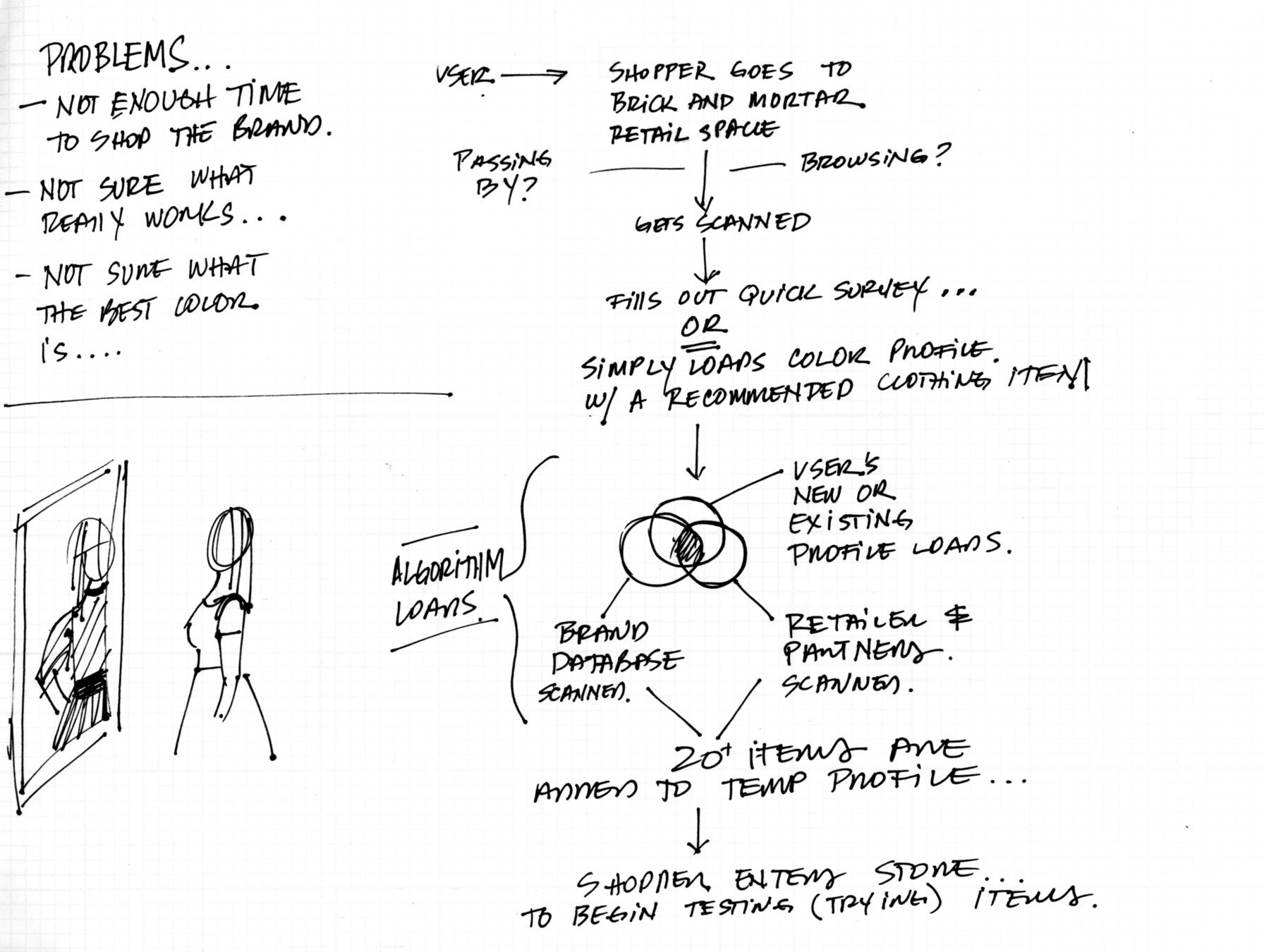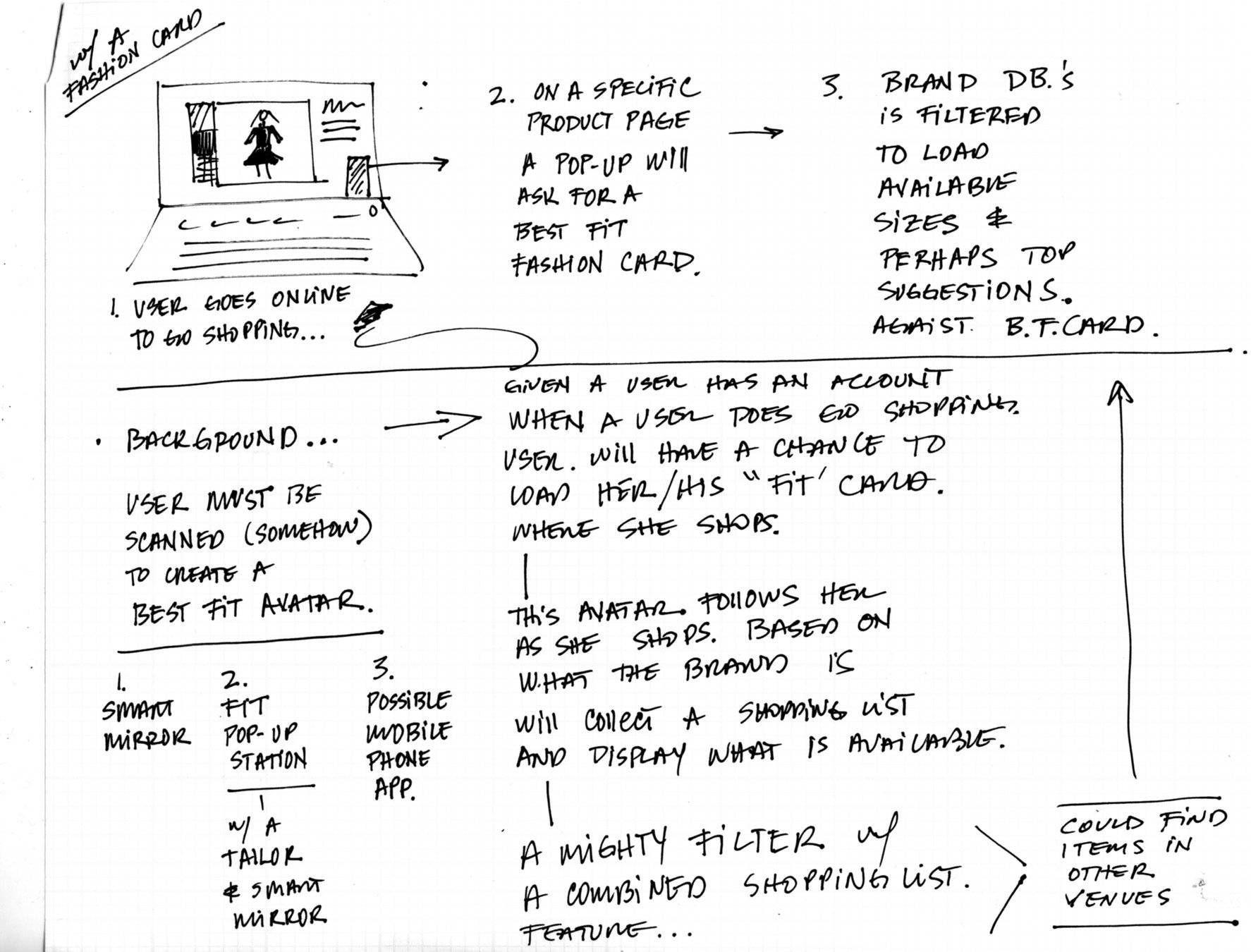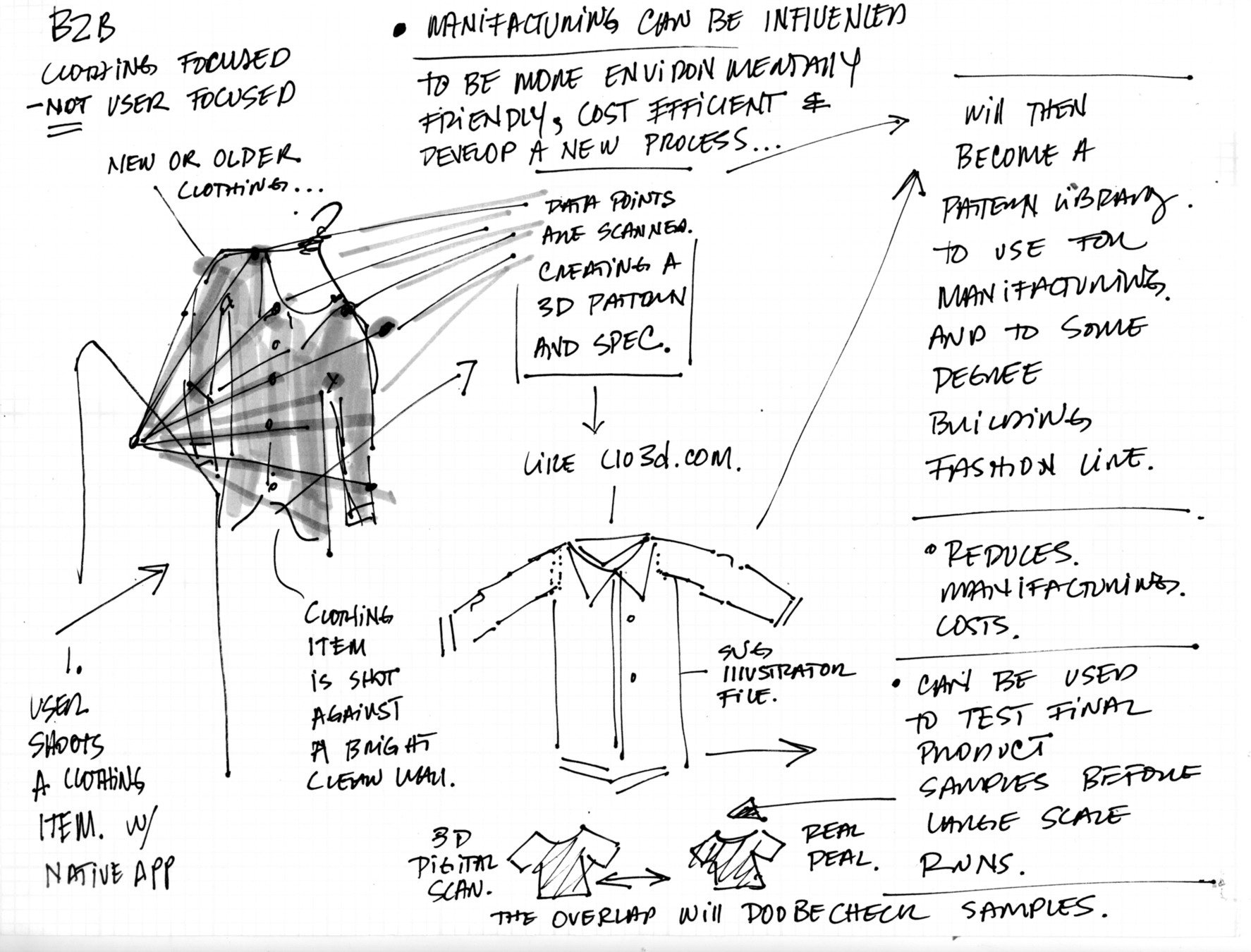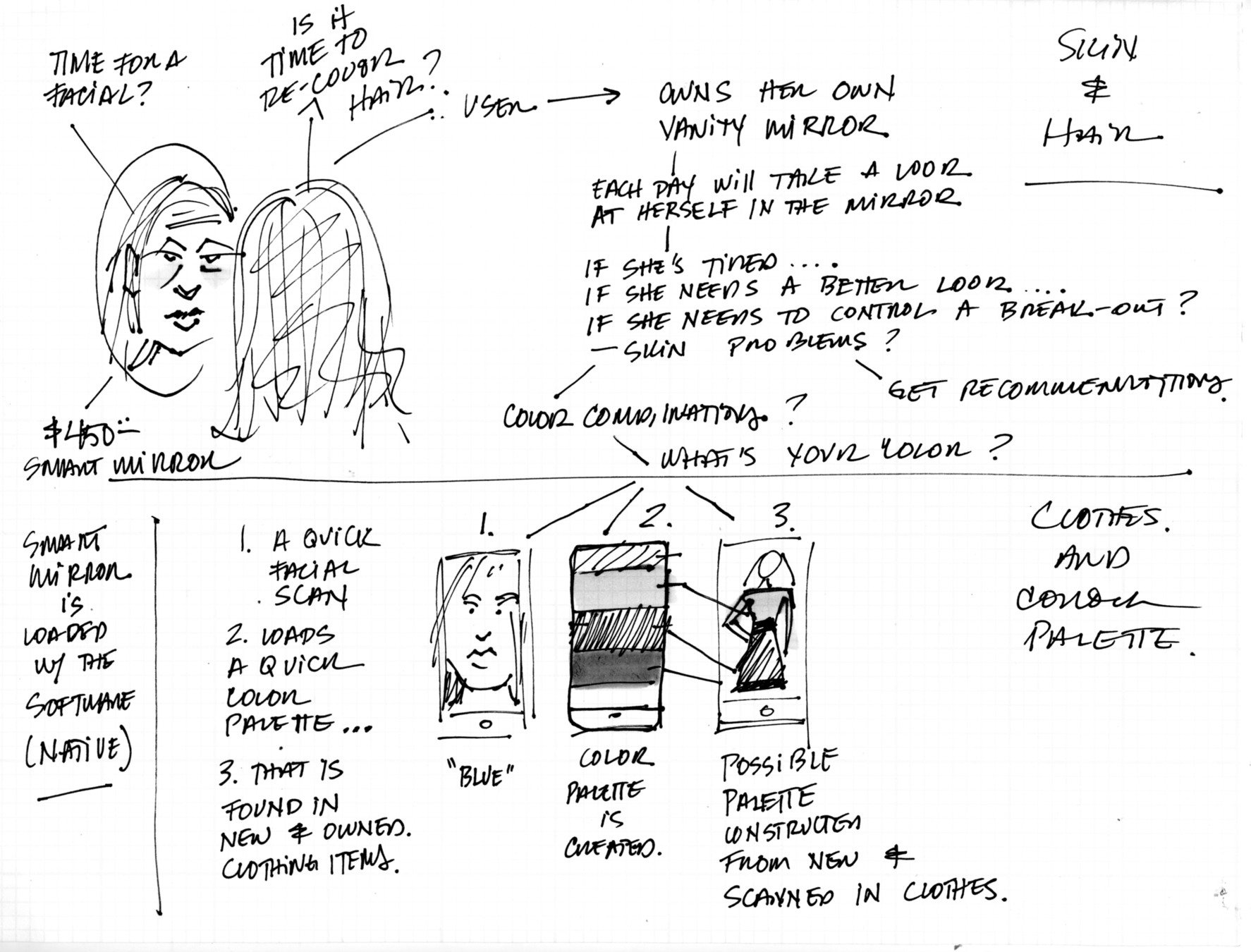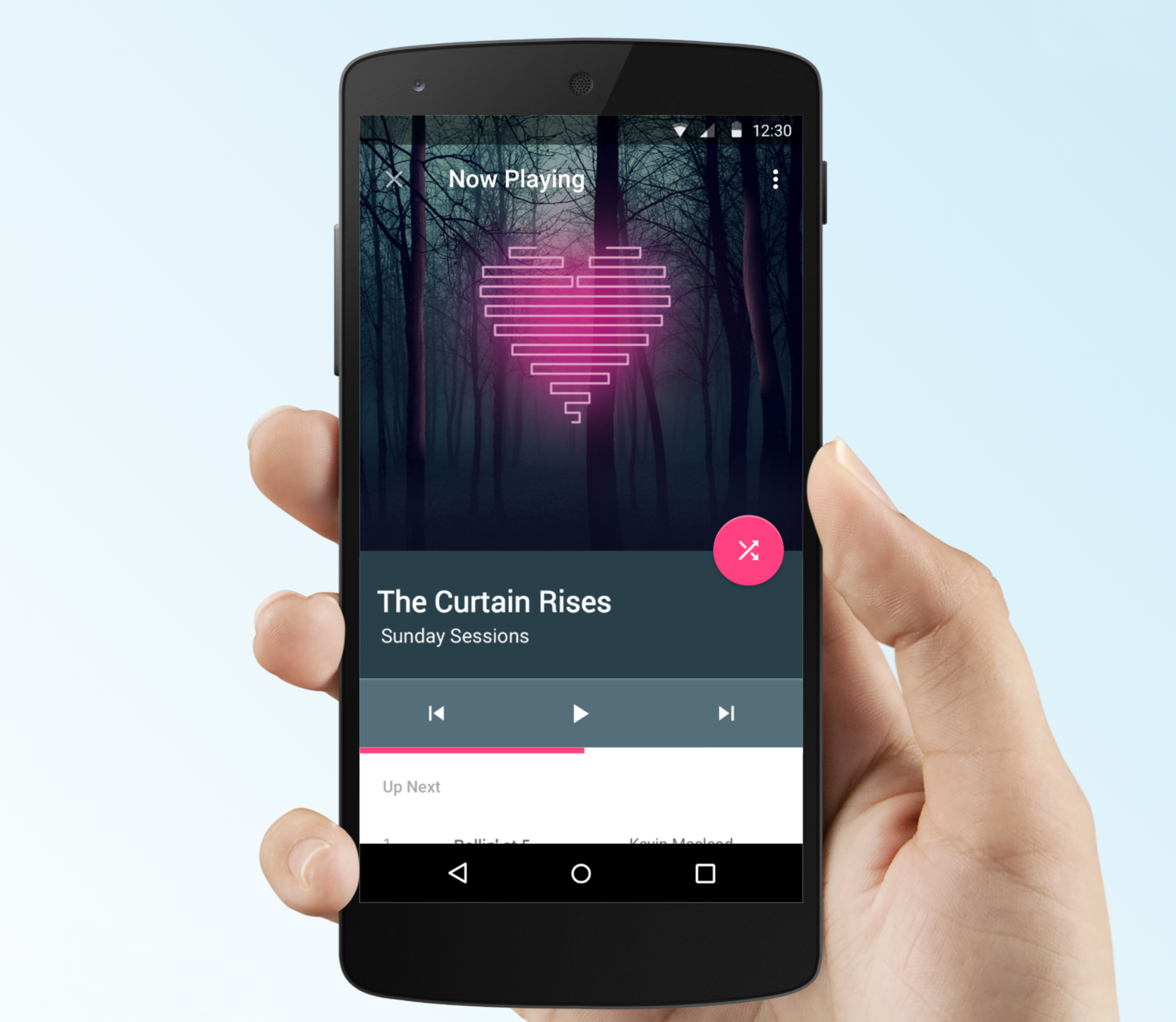
EXPLORING A GOOGLE SPRINT
THURSDAY 2.14.19
THURSDAY 2.14.19
presented by Anna Mendoza at KLEVERDOG CO-WORKING
contents
WHATS A SPRINT
MONDAY
MONDAY
TUESDAY
WEDNESDAY
THURSDAY
FRIDAY
INSPIRATION
hello
Part of the Scratch Series
We're constantly exploring new ways to
start software projects. Tonight I'm sharing one of them!

WHAT IS IT?
Its this 1 week process, for bringing a team together
going from a pretty broad challenge to a high fidelity
prototype, that gets validated at the end of the week.
what is a google design sprint?
WHY DO IT?
It's a powerful shortcut: Should we make it?
Don't spend months of time, invest a week
Don't spend months of time, invest a week
why do a google design sprint?
SLACK
UNITED NATIONS
KLM AIRLINES
HEADSPACE
KLM AIRLINES
HEADSPACE
GOOGLE HIRIING
FLATIRON HEALTH
LEGO
POCKET
BLUE BOTTLE COFFEE
GIMLET MEDIA
FLATIRON HEALTH
LEGO
BLUE BOTTLE COFFEE
GIMLET MEDIA
THE OFFICIAL MESSAGE
Jake Knapp from Google Ventures developed the
whole thing, here's a 90 second intro...
Currently my team and I are exploring building
a sizing app for clothing and we're doing this
through a Google Sprint.
a sizing app for clothing and we're doing this
through a Google Sprint.
That’s why I’m sharing this tonight:
How to build 'it', in 5 Days.
OVERVIEW
Day 1 Understand + Define
Day 2 Sketch + Decide
Day 3 Pitch + Diverge
Day 4 Prototype
Day 5 Validate
In only 5 days
A FEW THINGS TO GET STARTED...
• Choose a BIG challenge
• Recruit a team of experts
• Block 5 days you'll work on the Sprint
• Have a room with whiteboards - we're doing it here
at KleverDog
at KleverDog
• Stock up on supplies: Paper / Marker / Snacks
• Get the BOOK! Its got a pretty rigorous schedule
• Get the BOOK! Its got a pretty rigorous schedule
• Also if you don't have commitment - don't do the Sprint!
Set the stage
PLANNING YOUR TEAM
The best way to begin is to first identify roles.
Set the stage
PLAN YOUR TEAM
• Anna Mendoza, Product Owner / Developer
• Shawn Gill - Product Contributor / Creative Director
• Shawn Gill - Product Contributor / Creative Director
• Gilbert Kim - Manufacturing Expert / Developer
• We're including merchandisers, pattern-makers
to round out the discovery and validate the idea
there's always a decision maker present
SOME RULES
• Facilitator is in charge of the schedule
• The Decider makes all tough decisions
• The Decider makes all tough decisions
• No devices in the room
• Decide and move on
some basic agreements
MONDAY
On Monday, you’ll kick off your sprint
by
sharing knowledge,
understanding
the problem, and choosing a target for
the week’s efforts.
What's The Problem? Who's the Target?
MONDAY AM
You’ll 'start at the end' and agree to a long-term
commitment. Then you’ll make a map of the
current business flow.
current business flow.
• Look ahead 6 to 12 months with a solution
• Write out the long term goal
• Then list out all the challenges:
risks, assumptions that could kill the idea
risks, assumptions that could kill the idea
Start at the End
MONDAY AM
Make sure you understand the problem.
• What are the user needs, business needs
and technology capacities?
• Define business goals and success metrics
• What other products and services inspire you?
Understand the Problem
MONDAY AM
• Finally draw out a rudimentary map of how
a consumer is using the product / service
a consumer is using the product / service
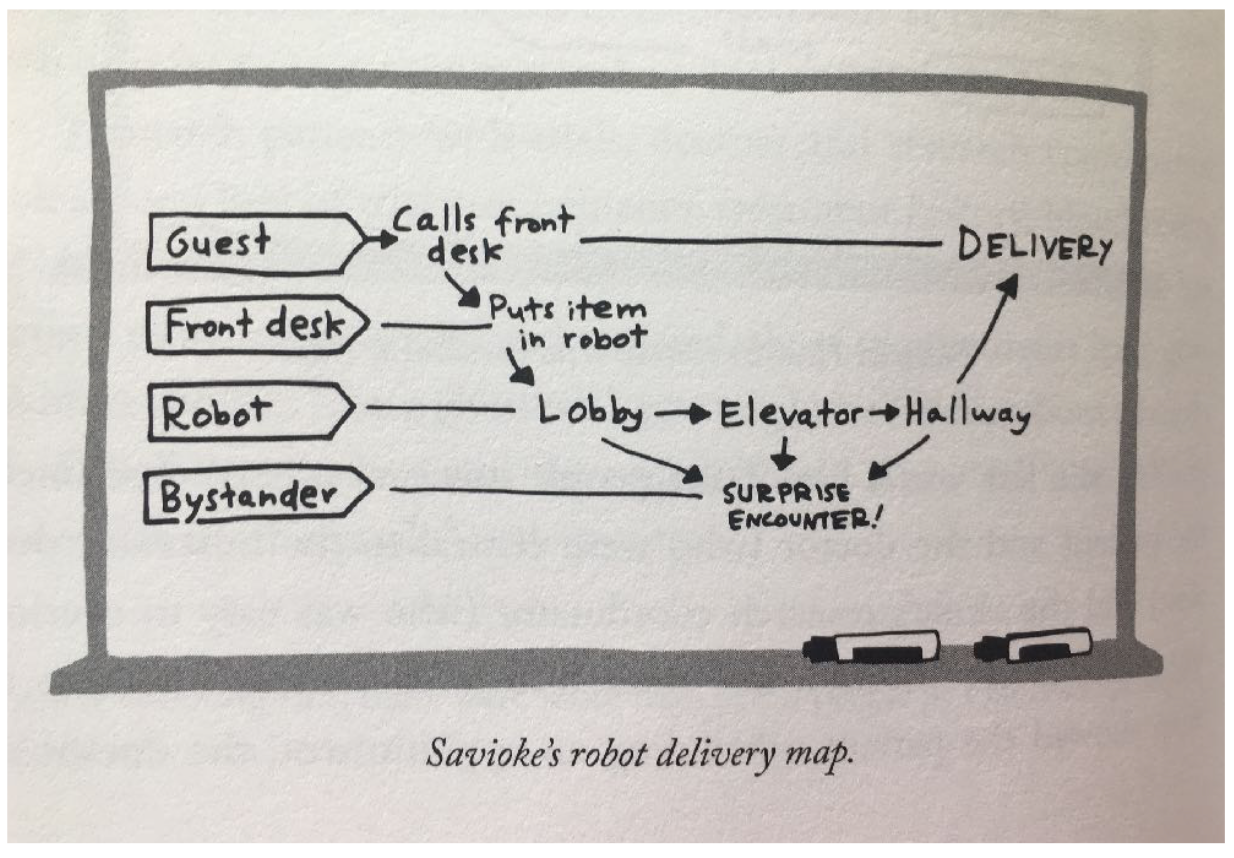
MONDAY AFTER LUNCH
In the afternoon, you’ll ask the experts at your company
and guests from the outside to share what they know.
• Ask about the vision, customer research
• How things work & previous efforts
• Use post-it notes to reframe problems as opportunities
• Make sure to take good notes
Ask the Experts
MARKET & ETHNOGRAPHIC RESEARCH
We'll be interviewing easily 15+ people.
From manufacturing, to human factors: all Experts.
Asking what is everybody doing, using and why. And how they’re engaging the market.
Then we'll create a
Pinterest Board
MARKET & ETHNOGRAPHIC RESEARCH
Typical Stakeholder interviews included:
- Name & Gender
- Passion Levels
- Price Willing to Pay
- Belief & Motivators
- Content & Inhibitors
- Receptors
- What they’re looking for and how they find it
MONDAY AFTER LUNCH
HMW (How might we…) Notes come next...
• After asking the experts you'll merge the
groups notes together, and organize them.
• Choose the most interesting ones that
help identify which part of the map to target.
help identify which part of the map to target.
• Then vote, each person has two votes
How Might We
MONDAY E.O.D. / TUESDAY BEGINNING...
Finally, you’ll pick a target: an ambitious but manageable
piece of the problem that you can solve in one week.
• Circle your most important customer and
one target moment on the map.
• Circle your most important customer and
one target moment on the map.
Pick a Target
MONDAY E.O.D.
It can look like this.... 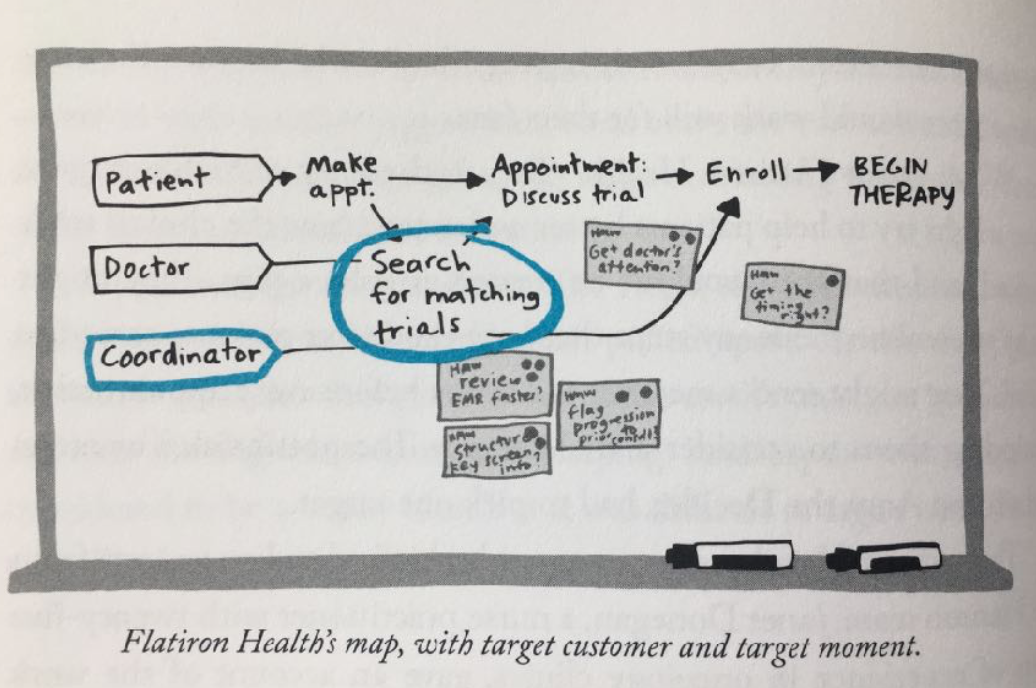

MONDAY: OUR PROBLEM
How does one purchase clothes
online that will truly fit?
Currently most online retail gives you a confusing chart,
where the sizes are international. You can't try things
on and its a hassle to send things back.
on and its a hassle to send things back.
Nothing Truly Fits

MONDAY AM: OUR GOALS
GOALS INCLUDE:
• Build tech for a better world
• Provide accurate size information to online shoppers
• Reduce returns - lack of a virtual dressing room
contributes to as high as 80% returns - *source
• Add value - a kind of sanity-check is added
• Increased confidence in a brand, means returning sales
• Provide a service that upholds a user's privacy
GOALS & CHALLENGES
MONDAY PM: OUR CHALLENGES
CHALLENGES INCLUDE:
• Even with size, you won't know how it drapes
• No touch: size works but fabric might not
• Preferences don't translate into size
• Renting vs. Owning dilemma - its expensive
• Size Chart doesn't exist or very confusing
• The hassle of waiting 2 days for a bad fit
• Hundreds of silhouettes, many cuts - 1 size
• Stretchy fabrics don't translate size
• PRIVACY - How do we stay trustworthy?
• Brick & Mortar has changed shopping behavior
GOALS & CHALLENGES
REMEMBER
Slow down and build a foundation first before solving everything. Make sure you have a shared understanding of the problem.
You do all the talking on Monday so that you can pick the solution to finish the rest of the week.
SHARE AN UNDERSTANDING
TUESDAY
On Tuesday, you’ll choose the target,
and begin focusing on solutions.
Revisit existing ideas, remix and
improve through a 4 step process.
improve through a 4 step process.
Revisit Discovery Begin Sketching Solutions
TUESDAY AM
Jake K & John Z explain the day...
TUESDAY AM
We started with solutions from other companies,
different domains, and began making a list.
• Everybody gives 3 minute Demos
• Every Demo gets captured on a whiteboard
Lightning Demos
TUESDAY AM

FROM MONDAY
Monday's map + these lightening demos
make for a wealth of raw material to reference
Let the research guide you
TUESDAY PM
1. TAKE NOTES - Walk around and gather notes
2. IDEAS - Privately jot down rough ideas & circle
the most promising ones.
3. CRAZY 8's - 8 Minutes to create 8 Frames.
Sketch a variation of your best ideas.
4. Storyboard - 90 Min Max. Create a three-panel
Sketch a variation of your best ideas.
4. Storyboard - 90 Min Max. Create a three-panel
storyboard and figure out the details
4 Step
Sketch
TUESDAY PM
4 steps to follow
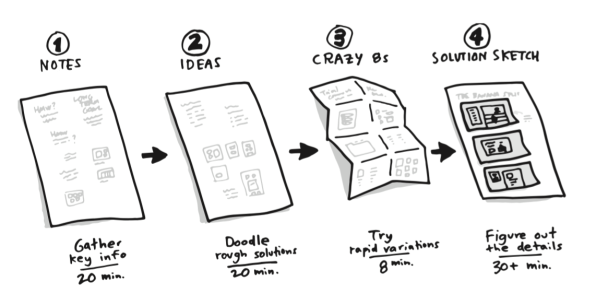
TUESDAY PM
The Crazy 8 Technique:
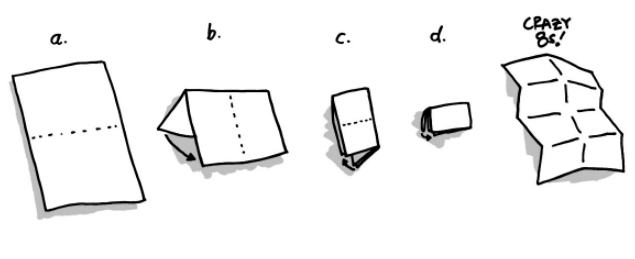
TUESDAY PM
The Crazy 8 Technique:

TUESDAY E.O.D.
• Ugly Is Okay
• Work Alone - Group brainstorms don't work,
let everyone work a solution on their own.
• Remix & Improve - Build on the existing ideas
in the room.
in the room.
Key Ideas
HOW WE'RE TRACKING EVERYTHING...
WORKFLOWY
https://workflowy.com/#/d083efd3b970
https://workflowy.com/#/d083efd3b970
TUES: OUR LIGHTING DEMO #1 - SMART MIRROR
TUES: OUR LIGHTNING DEMO #2
TUES: OUR LIGHTNING DEMO #3 - CLO3D
TUES: OUR LIGHTNING DEMOS #4 SEPHORA / #5 Dr. J. Teran
OUR CORE IDEAS GOT REFINED
• We create 50 million metric tons of e-waste globally
each year, there's an 80% return rate for online shopping
• Strive to create true utility or joy.
• Respect people's time and info.
• Create a situation that's trustworthy
• Ultimately develop a way to reduce the
carbon footprint of manufacturing
carbon footprint of manufacturing
Core Ideas
WEDNESDAY
By Wednesday, you’ll have a stack,
of solutions to review. But you can't
prototype all of them, so its a critique day. Time to debate & choose.
Debate & Choose
WEDNESDAY AM
Jake K & John Z explain the day...
WEDNESDAY AM
You know those meetings. The ones that go on forever,
wandering off on tangents and burning time & energy?
wandering off on tangents and burning time & energy?
Most people debate this way:

WEDNESDAY AM
Or you get a succession of endless pitches...
Pitch / Critique / Vote...Pitch / Critique / Vote...
Too fast: its a BLUR.
Too slow:
its Brain Drain.

WEDNESDAY AM
With a Sprint, you have a process:
Evaluate solutions all at once, critique all at once
and then make a decision all at once.
This saves lives!

WEDNESDAY AM
The Sticky's 5 Steps...
1. Art Museum - Display horizontally @ room.
2. Review Silently - Dot (1-3) the ones you like.
3. Speed Crit - Discuss as a group, 3 min per sketch.
4. Straw Poll - Silently choose an idea, cast a vote
4. Straw Poll - Silently choose an idea, cast a vote
5. Super Vote - Then chose with 3 Xtra dots to
select the prototype.
select the prototype.
Sticky / Rumble / StoryBoard
WEDNESDAY AM / STICKY REVIEW & VOTE
Step 1-2: Place all the solutions on a board and have
everyone cast a vote with dot stickers.

WEDNESDAY AM / STICKY SPEED CRIT & STRAW POLL
Step 3-4 Debate as a group.

WEDNESDAY AM / STICKY SUPERVOTE
Step 5: You'll end up with 1 Winner.
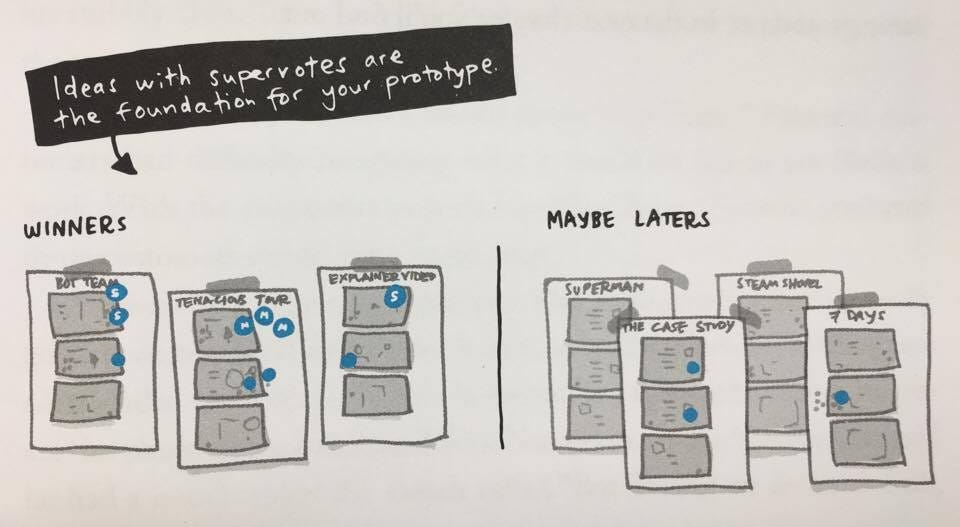
WEDNESDAY AM / RUMBLE
If you've got more than 1 Winner than you
do a Rumble with provided steps.
1. Everyone quietly votes.
2. You write down everyone's top favorite.
3. Everyone calls out their favorite idea.
3. Everyone calls out their favorite idea.
4. Decider makes final call. Go to lunch!
Sticky / Rumble / StoryBoard
WEDNESDAY PM / STORYBOARD
Now the Storyboard. It'll be tempting to just
start prototyping without a plan...
Kinda like this:

Sticky / Rumble / StoryBoard
WEDNESDAY PM / STORYBOARD
Stick to the Recipe, follow the steps.

Sticky / Rumble / StoryBoard
WEDNESDAY PM
The Storyboard Steps.
1. Draw a grid. About 15 squares on a whiteboard.
2. Choose an opening scene. Keep it simple.
2. Choose an opening scene. Keep it simple.
3. Fill out the storyboard. Include just enough detail
to help the team prototype on Thursday.
to help the team prototype on Thursday.
Sticky / Rumble / StoryBoard
WEDNESDAY PM
Final StoryBoards should look like this:



reduce
We're organizing complexity into
simple reusable design patterns
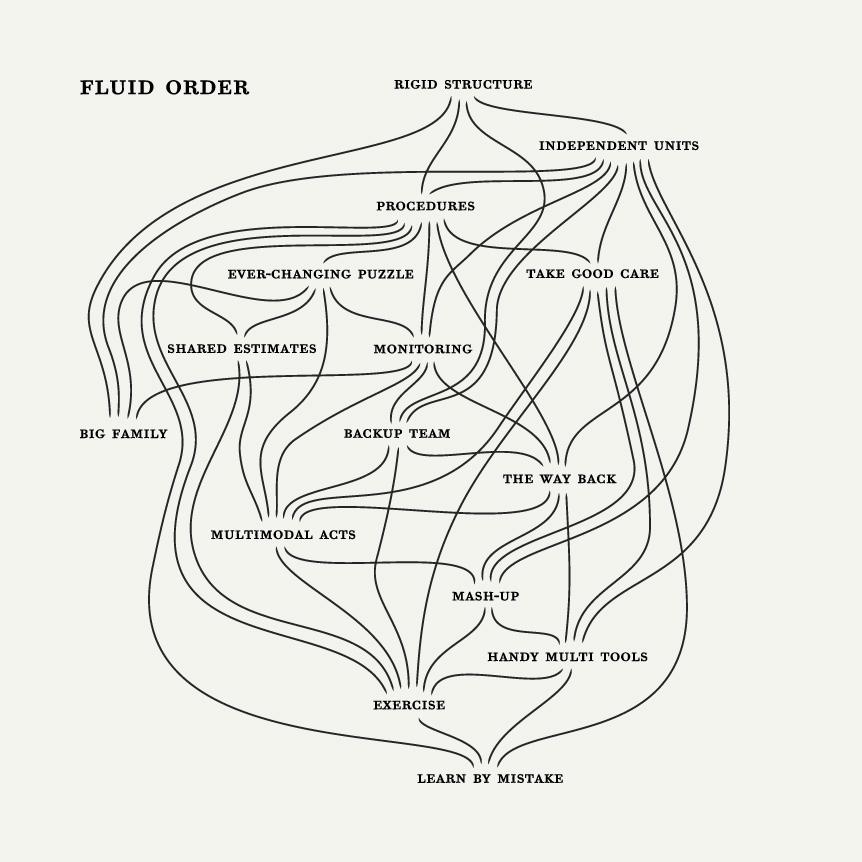
THURSDAY
Thursday, you’ll build the facade.
An actual prototype you'll test with
real users, that's got just enough
detail to measure a response.
FAKE IT
THURSDAY AM
Jake & John share the details...
THURSDAY AM
Create a prototype with just enough quality to
evoke honest reactions from customer
Resist the regular tools.
1. Divide & Conquer - break the storyboard into
smaller scenes and assign each to a team member.
2. Stitch it together. With the work split into parts.
3. Do a trial run.
Start Testing the Idea
THURSDAY / PROS
So far here's some instant pros:
• It created a focus, so we didn't waste time.
• It made us aware how much waste there is in
online shopping
online shopping
• Made us dialogue about privacy and the
cost-of-doing business
• Highlights how could we offer an alternative
• Collaboration breeds respect w/ shared vision
pros and cons
THURSDAY / CONS
And some instant cons...
• It's painful when everyone is too busy.
not doing their homework, and popping in.
• Its a bit of a panacea, its not magic, its hard work.
• Features are built in extremely limited scope.
pros and cons
FRIDAY
Today you'll interview customers and learn by watching them react to the prototype. By day's end, you’ll know
how far you have to go, and what to
do next.
how far you have to go, and what to
do next.
Watch & Learn
FRIDAY AM
Jake and & John share final details...
FRIDAY FINAL TIPS
1. Five is the magic number. After 5 customer interviews,
big patterns will emerge.
2. Watch together, learn together. Don’t disband the
sprint team. You’ll draw better conclusions.
3. Look for Patterns.
Determine the Next Steps
I'm going to wrap it up here with
a little prediction: I'd like to use
Framer.js and Sketch.
Then Materialize, React and Rails
installing the whole thing with
YARN.
Check It Out >
THANK YOU!
EXPLORING A GOOGLE SPRINT
By Anna Mendoza
EXPLORING A GOOGLE SPRINT
How To Begin A Google Sprint
- 2,294
